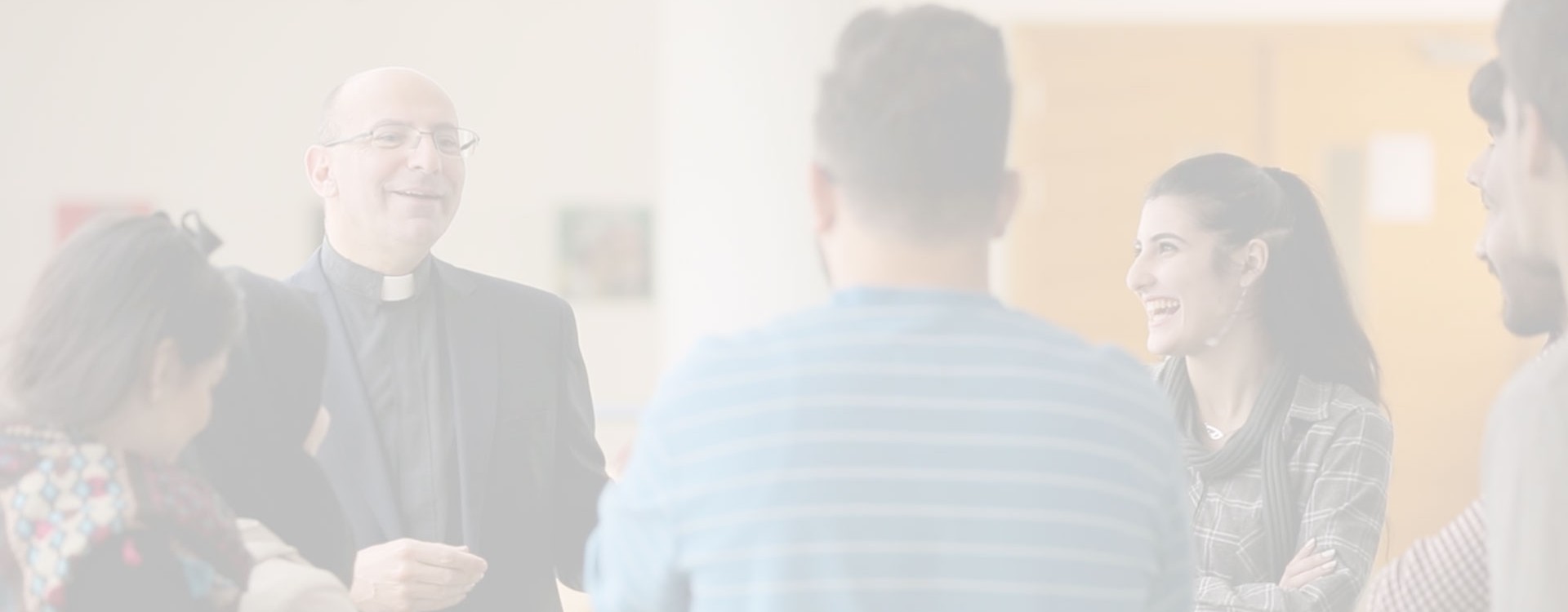
Frequently Asked Questions
It is understandable that people have concerns about this. Our media tends to share news that is concerning, but what is shared is the exception and not the norm. Palestinian people are very warm and friendly to visitors. As tourists, neither Israelis nor Palestinians have any interest in seeing you hurt or put in danger, so you will be well taken care of. If an area is thought to be unsafe, for any reason, you will not travel there - unrest and possible violence is largely predictable. Tension seems to breed where there are sites important to both Jews and Muslims, but security is tight around these sites, so you will not be in danger. It is your tour guide’s responsibility to know the dynamics of the situation on the ground, so you can trust his/her decisions.
Global COVID - 19 conditions are dynamic. U.S. citizens planning to travel to the Holy Land should be aware that requirements for travel may include quarantining, mandatory COVID-19 testings, and other travel restrictions. Israel’s government may implement restrictions with little notice. Additionally, each airline has specific requirements for travelers. Regarding entry regulation, please refer to these two-official links for official updates on COVID. Additionally, your tour operator will have up-to-date information regarding COVID-19 restrictions.
- Israeli Ministry of Tourism: https://safe.israel.travel/
- Israeli Ministry of Health: https://corona.health.gov.il/en/country-status
Your risk of contracting COVID-19 may be low if you are fully vaccinated with an FDA authorized vaccine. You still may be able to spread COVID-19 even if you are fully vaccinated.
Since the Holy Land, Bethlehem, and Jerusalem in particular, is heavily dependent on tourism, many people speak English, among other languages such as German, French, Italian, Spanish…and of course Arabic. English is mandatory in schools and American/British television is available here, so people have exposure to the language. Often children will want to try out their English on tourists, so you may have children engage with you by saying “Hello, what is your name?” or “Where are you from?”. Street signs, shop signs, food labels, and other products will be printed in English, but if not, someone in the area will be happy to help you. Palestinian people are very friendly, and generally happy to engage with you.
The climate is generally dry, with rain typically during the winter months (November - February). The month with the most rain will be January. The muggier, more humid months of the year are July through September, which also coincides with higher temperatures. The hot season lasts for 4.5 months, from the end of May till the first week of October, with an average daily high temperature above 79°F. The hottest month of the year is August, with an average high of 85°F and a low of 66°F.
The cool season lasts for 3.1 months, from December 7 to March 10, with an average daily high temperature below 59°F. The coldest month of the year in Jerusalem is January, with an average low of 41°F and a high of 53°F. However, January can be as warm as the mid-60s, and as cold to result in brief snow flurries. Below are average highs and lows throughout the year:
| Avg. | Jan | Feb | Mar | Apr | May | Jun | July | Aug | Sep | Oct | Nov | Dec |
| High | 53°F | 55°F | 61°F | 70°F | 77°F | 82°F | 84°F | 85°F | 82°F | 76°F | 66°F | 57°F |
| Temp | 47°F | 48°F | 53°F | 61°F | 67°F | 72°F | 75°F | 75°F | 72°F | 67°F | 58°F | 50°F |
| Low | 41°F | 42°F | 46°F | 51°F | 57°F | 62°F | 65°F | 66°F | 63°F | 59°F | 51°F | 44°F |
- All visitors to Israel must hold a passport that is valid for at least six months from the date they are departing the country. Please ensure that your passport meets this criteria. If you are coming from the U.S., it is not necessary to have the entry visa prior to your arrival - you will get it at the airport or border crossing. It is always a good idea to have a copy of your passport in case of loss.
- Any needed prescription medications.
- Clothing suitable for the climate and cultural norms. Shorts are not worn on the streets of Bethlehem, for example, by women or men, even when it is very warm. Conservative dress is the norm. Dress is modest. For example, shoulders are not bare, and women may need a head or shoulder scarf to enter some religious buildings. Some travelers have worn clothes that they intended to leave behind, making room in their luggage for items purchased to bring back.
- A nicer outfit for church or evenings out
- Casual, modest, no iron attire (t-shirts, comfortable pants, etc.)
- Good, comfortable shoes for walking
- A jacket or sweater
- A hat
- A backpack/daypack/carrying bag for your long sightseeing excursions
- If you are visiting the Dead Sea or the Mediterranean Sea, a swimsuit.
- Your cell phone or camera to take photos
- Electric current converter. Electrical appliances in the Holy Land need 220 Voltage as compared to 110 Voltage in the U.S. Some cell phone and computer chargers do their own voltage adaptation, so if your device says “INPUT: 100-240- V” you will only need an outlet adaptor.
The shekel (New Israeli Shekel) is the currency used in Palestine and Israel’s national currency. The currency abbreviation is NIS. Some hotels and restaurants will accept foreign currency, such as the dollar or Euro, but you should expect to use shekels. U.S. currency should be brought for traveling through the airports and can be exchanged for shekels at many changers in the major cities, such as Bethlehem and Jerusalem for little commission. You can exchange money at the airport money changes upon arrival, but they charge a higher rate of commission. There are ATM machines in Bethlehem and Jerusalem, but not all machines work with all card types. Credit cards may be accepted in the major cities, but typically only in the hotels and bigger restaurants. You should count on using shekels if possible.
In Bethlehem, prices are typically not marked on goods, and the prices are almost always negotiable. If you want to purchase a more expensive item, it is best to ask a Palestinian friend you can trust to accompany you to discuss the purchase and to negotiate price. In Jerusalem, pricing may be less negotiable. Small shop owners may only accept cash.
It is best to assume there will be no laundry options. Some hotels may offer dry cleaning services, but the turn around to get your clothing back might not be suitable for your travel schedule. The best way to do washing is in your bathroom sink, and then hanging things to dry. Some travelers pack an individual laundry soap packet for this purpose.
Palestinian cuisine comes from the land ~ rich with olives and olive oils, dates, fabulous salads, shawarma, and kebabs. Meals are flavored with Za’atar and Sumac. Hummus and pita are always plentiful. One of the most famous Palestinian dishes is maqlubeh, or “upside-down”, which is chicken, or another meat roasted in a large pot with onions and other vegetables, with rice on top. It is served by inverting the large pot onto a serving plate in a glorious manner, with there being easily enough food to serve an entire table. Water to drink with meals is bottled, and safe for drinking.
Bethlehem, the town in which Jesus was born, has the largest Christian population of all Palestine, but Christians make up only 27% of the population, with the rest of the population Muslim. (In all of Palestine, Christians make up 2% of the population). Christians and Muslims live in harmony in Bethlehem, and the distinction of which religion one belongs is not an important identifying characteristic. Bethlehem is surrounded on three sides by the Occupation wall, making going in and out of Bethlehem difficult for the Palestinians. As a U.S. traveler, you will have no difficulty going between Bethlehem and its surrounding areas.
Bethlehem, to locals, is a regular city of a fairly large size; to you, it will seem more like a village or town. The city has a few districts but mainly is divided into the Old City and the New City. The Old City, which you can tour around, comprises the Manger Square area and tourist areas. There are many old churches and religious sites to visit, all free to travelers. Taxis run all over town and will generally take you where you want to go, though you will probably be staying with your tour group at all times.
Jerusalem is very diverse, and you will have the opportunity to meet all kinds of people there. The Old City is divided into quarters: Muslim quarter, Christian quarter, Jewish quarter, and Armenian quarter.
The Occupation wall was built in the style of a border barrier. For the most part, it consists of an electronic fence with paved paths, barbed wire fences, and ditches flanking it on either side. In urban areas, including Bethlehem, Israel constructed an eight-to nine-meter-high concrete wall. With this barrier, Israel cut off residents of some 150 Palestinian communities from their land blocking thousands of Palestinians from freely accessing their land. For many Palestinians, work exists on the other side of this barrier. Therefore, Palestinians must cross checkpoints on a daily basis. The Occupation Wall curtails the freedom of movement for Palestinians, impinging upon their rights to work, education, medical care, and a right to self-determination.
Yes, there are Israeli soldiers at all border crossings and at checkpoints throughout the Occupied Territories. Most of the Israeli soldiers patrolling borders are doing it as part of their mandatory military service and may be 18 or 19 years old. Holding a foreign passport (American, EU, for example) will typically get you through checkpoints with ease. When engaging with Israeli soldiers, do not say anything unnecessary. Answer their questions with straight and concise answers. Do not take a photo of an Israeli soldier without asking permission.
It is typical that the guard will ask the reason for your visit. Stating that you are on a “Holy Land pilgrimage” or a “Christian pilgrimage” will be sufficient information to share at that time. If asked where you will be visiting, answering “to see the Holy sites” is an adequate correct answer.

